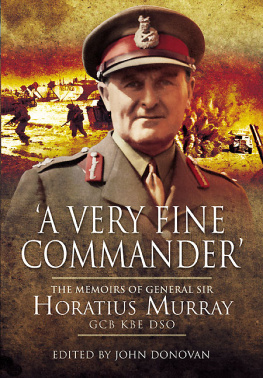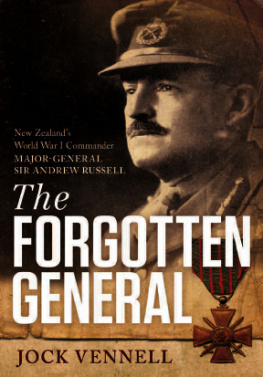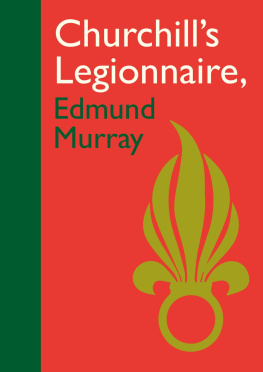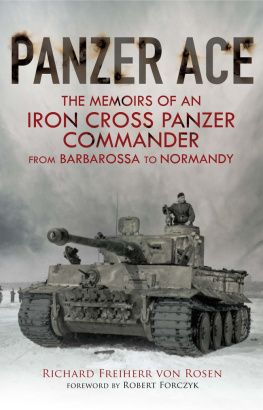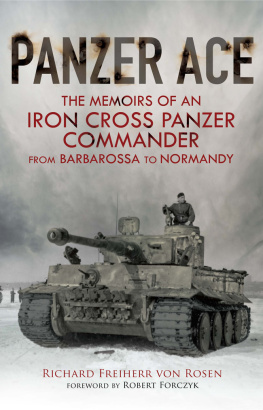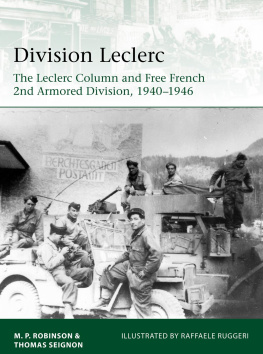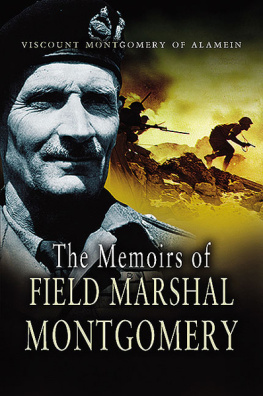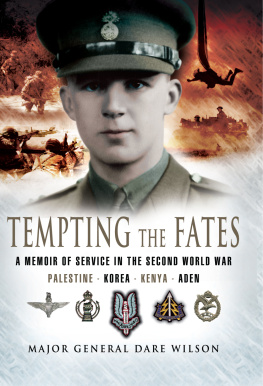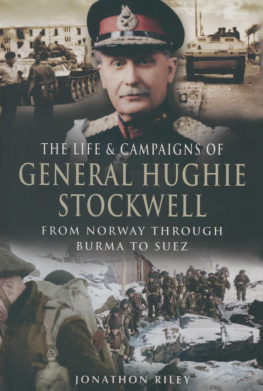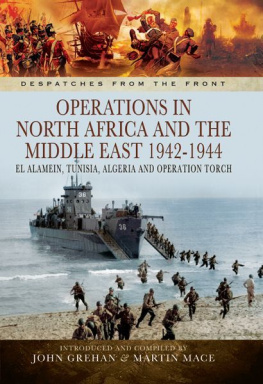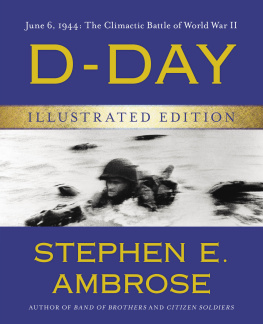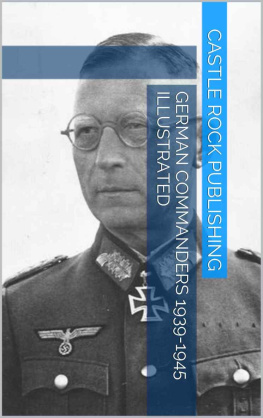To the dear memory of Marjorie Florence,
younger sister of Nap Murray
First published in Great Britain in 2010 by
Pen & Sword Military
an imprint of
Pen & Sword Books Ltd
47 Church Street
Barnsley
South Yorkshire
S70 2AS
Copyright John Donovan, 2010
ISBN 978 1 84884 337 0
ePub ISBN: 9781844683444
PRC ISBN: 9781844683451
The right of John Donovan to be identified as Author of this Work
has been asserted by him in accordance with the Copyright,
Designs and Patents Act 1988.
A CIP catalogue record for this book is
available from the British Library.
All rights reserved. No part of this book may be reproduced or transmitted in
any form or by any means, electronic or mechanical including photocopying,
recording or by any information storage and retrieval system, without
permission from the Publisher in writing.
Typeset in Sabon by
Phoenix Typesetting, Auldgirth, Dumfriesshire
Printed and bound in England by
CPI UK
Pen & Sword Books Ltd incorporates the imprints of Pen & Sword Aviation,
Pen & Sword Maritime, Pen & Sword Military, Wharncliffe Local History,
Pen & Sword Select, Pen & Sword Military Classics and Leo Cooper.
For a complete list of Pen & Sword titles please contact
PEN & SWORD BOOKS LIMITED
47 Church Street, Barnsley, South Yorkshire, S70 2AS, England
E-mail:
Website: www.pen-and-sword.co.uk

Contents
Introduction
My uncle, General Murray, personally typed these memoirs in the mid-1970s with a view to having them published later. Around that time, he wrote in 1974 to a former officer under his command, Colonel Rose Price: My so-called memoirs amount to 250,000 words written from memory. Their pruning and editing for someone else, much later on Im afraid I get bored when gazing too long into the past. For many years his memoirs gathered dust in old metal military boxes and if he made any attempt to get them published, it is not recorded. He certainly mentioned the fact that he had written them to his old friend and mentor Field Marshal Montgomery, whose comment was typically unsentimental: Your memoirs? Nap, whoever do you think is going to read them?
Many years have since passed and it is hoped that they will now be read as an historic personal account of a forty-year distinguished military career, starting at Sandhurst in 1922 and ending as NAATO northern C-in-C in 1961; written by a very special man, self-deprecatory with a wicked sense of humour and a prodigious recall to the end of his long life. When one met him, one always felt better for having done so. If there is such a thing as an X-factor in human nature, my uncle had it in spades. He was a most careful keeper of possessions which had significance in his life, from a bundle of correspondence with his splendid mother, a description of whom is vividly penned in the first chapter, to correspondence from Montgomery, Harding, Mark Clark and other World War Two Generals.
Curiously enough his hero was not a soldier, but Admiral Lord Nelson, whom he quoted from time to time, in particular his message to his fleet before battle: In Victory, Humanity. A statement which he followed himself, both in the small and the big events of his life. Apart from a glittering military career, his handicap of five in golf and playing football for the Army, he had wide interests including the wish to read Goethe in the original, which led to his becoming an Army interpreter in German.
He considered his greatest achievement was being a Divisional Commander in four separate commands, namely the 6th Armoured Division in Italy; 1st Division in Palestine; 50th Division in Catterick; and the Commonwealth Division in Korea when Montgomery described him as being the best Divisional Commander that I have come across for some time, and I see a good many in my travels. These four commands are well described in the memoirs, together with fascinating accounts of his time training with the German Army in 1937; Edward VIII (when he was King) at Staff College; the pre-war life of an Army officer in the Empire serving in India, China and Egypt; his first meeting with Montgomery in England as staff officer in the 3rd Division during the threatened invasion by Germany; his graphic accounts of battle in the Desert, Sicily, Normandy and Italy between 1942 and 1945; and his subsequent military career, ending as Commander-in-Chief, Northern Europe in the 1960s.
After retirement he turned his energies to helping others; in particular the Royal Hospital for Incurables at Putney, of which he was Chairman, and a settlement in the East End in which he sometimes lived to help the young and destitute.
John Donovan
17 May, 2010
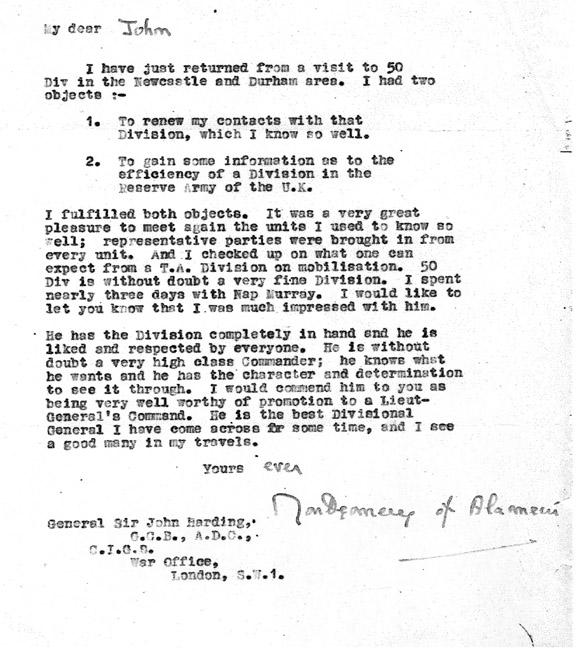
This letter is reproduced by kind permission of the Viscount Montgomery, CMG, CBE.
Acknowledgements
This book would not have been possible without the assistance of a number of people, and my thanks must go to the following: first and foremost Wendy, my good secretary without whom this book would never have seen the light of day; the three Cameron Highlanders ADCs, Colonels Douglas Miers, Andrew Duncan and Johnny Langlands; Major Neil Wimberley; Lieutenant General John MacMillan; Dr Alex Powers-Jones, Archivist Cameron Barracks, Inverness; Colonels J N D Lucas and McKay OBE, IC & Covenanter Cameronian Association; the Estate of Bill McFarlan MC; Brigadier Henry Wilson and the late Bobby Gainher of Pen & Sword; my brother Hugh for reproducing all the photographs; Ian McCorquodale; Broo Doherty; and Dr Yellowlees, MO 5th Cameron Highlanders, Normandy 1944.
Part 1
The Early Years 19031939
Chapter One
Childhood
I was the third of five children, having a brother and sister who were older than I was, and a brother and sister who were younger. My mother was a Yorkshire woman from Leeds, and my father an Irishman from Glasgow. On my mothers side, her father was a gifted engineer but he died when my mother was quite a small girl, leaving his wife with a large family and little else. The family name was Batty and they were a very well-known family in Leeds for a considerable number of years.
I do not know what the circumstances were which led to them meeting and the mutual attraction that followed. My mother was a very striking woman with rich auburn hair which fell to her waist and could only be secured by being piled up in an enormous bun on the top of her head. She had the clear skin which went with it, but radiated vitality and was a veritable Yorkshire dynamo. She was slightly above medium height, had a good figure and was a dominating personality. She was very fond of music and had a good contralto voice, but had little or no opportunity of getting her voice trained when she was young. She did everything she could to encourage us to play a musical instrument, which would be either the violin or the piano. My father was definitely quite different from the ordinary kind of Yorkshireman. As a father he was a firm believer that the rod should, in no circumstances, be spared for the education of his children, a painful experience that was perhaps too frequently repeated.
My parents were married in Leeds in 1899 before settling in London where my elder sister was born in 1900. My father suffered a great deal from arthritis and twice had rheumatic fever, as a result of which he was transferred to the Winchester branch of Boots. And so it came about that the family settled in that city, where it remained through three generations for nearly seventy years.

